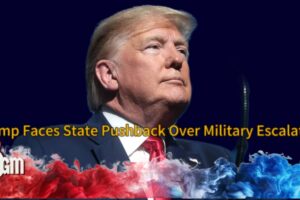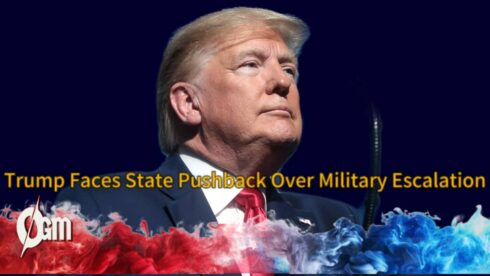The U.S. Supreme Court has decided to review TikTok’s legal challenge to avoid a potential nationwide ban or forced sale of the app. The app and its parent company, ByteDance, argue that such actions are unconstitutional, claiming they would infringe on free speech rights of over 170 million American users.
The Supreme Court’s decision to take up the case is significant, given it hears only about 100 cases annually out of more than 7,000 petitions. The case will be presented on January 10, just nine days before the ban is set to take effect. This follows a December federal appeals court ruling, which upheld the legislation supporting the ban, describing it as a product of bipartisan efforts by Congress and successive presidents.
TikTok’s Free Speech Argument and Government’s National Security Concerns
TikTok maintains that banning the app would violate the First Amendment by restricting users’ ability to communicate and express themselves freely. A spokesperson for the company expressed optimism about the Supreme Court’s decision, stating, “We believe the Court will find the TikTok ban unconstitutional so Americans can continue to exercise their free speech rights.”
However, the government argues that TikTok poses national security risks due to its ties to the Chinese state. This assertion has been a focal point of the case, with University of Richmond law professor Carl Tobias highlighting the tension between free speech and national security concerns. “The Justices will scrutinize the potentially conflicting, but significant, values,” he said. Cornell professor Sarah Kreps added that overturning the prior rulings would be surprising, given that the legislative, executive, and judicial branches have supported the ban.
Political Dynamics and Trump’s Potential Influence
Amid the legal proceedings, the political landscape surrounding TikTok remains fluid. Former President Donald Trump’s re-election victory could provide TikTok with a potential reprieve. Trump, who supported a ban during his first term, now opposes it. On Monday, he reportedly met with TikTok CEO Shou Zi Chew at his Mar-a-Lago estate, expressing his preference to keep the app operational.
Trump credited TikTok for his popularity among younger voters, despite the majority of 18-to-29-year-olds favoring his opponent Kamala Harris in the election. Nevertheless, his support might come too late, as he assumes office on January 20, one day after the ban is slated to take effect. Meanwhile, influential Republican Mitch McConnell has urged the Supreme Court to reject TikTok’s case, calling its arguments “meritless and unsound.”
Industry and Advocacy Groups Weigh In amidst supreme court decision
The potential ban has drawn reactions from various sectors. Civil liberties organizations have filed a joint brief urging the Supreme Court to block the legislation, arguing that millions of users rely on TikTok daily for communication, education, and self-expression.
Market analysts have also highlighted the broader implications of a TikTok ban. Kelsey Chickering of Forrester Research noted that Instagram’s parent company, Meta, would benefit greatly from such a move. “A ban would effectively create a Meta monopoly on short-form video,” Chickering said, referencing a survey showing that 56% of TikTok users would switch to Instagram Reels.
As the Supreme Court prepares to hear the case, the decision will likely have far-reaching consequences, not only for TikTok’s operations in the U.S. but also for the broader debates surrounding free speech, national security, and digital monopolies.
Implications for US-China Relations and Social Media
The Supreme Court’s decision to hear the case underscores its significance, not just for TikTok but for broader U.S.-China relations. The legal fight comes amid escalating tensions between the two global powers, with TikTok serving as a flashpoint in debates over digital security and influence. The U.S. federal government and several states have already banned the app on official devices, signaling bipartisan concern over its potential misuse.
If the Supreme Court sides with TikTok, it could set a precedent for how foreign-owned technology companies operate within the U.S. However, a ruling in favor of the government could pave the way for stricter regulations on other platforms. Regardless of the outcome, the case highlights the growing intersection of technology, politics, and free speech in a digitally connected world.














